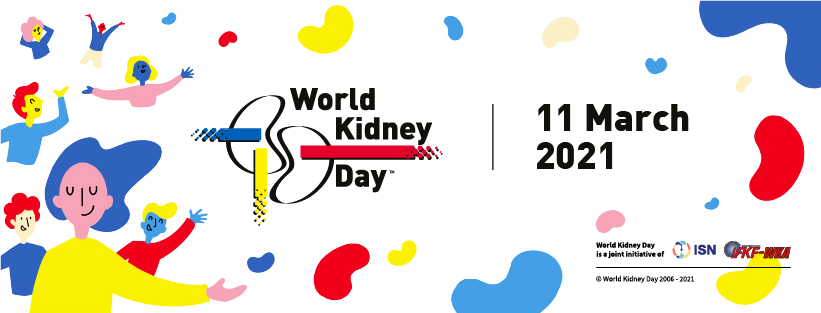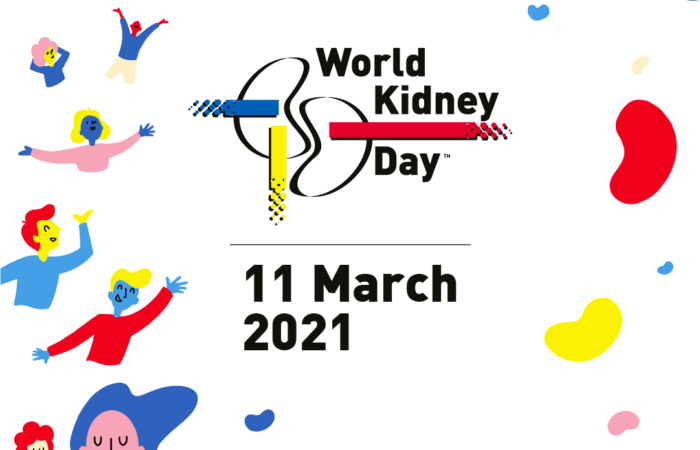
World Kidney Day 2021
By Dr. Pallavi Shirsat
10% of the population worldwide is affected by chronic kidney disease (CKD) and more than 2 million people worldwide currently receive treatment with dialysis or a kidney transplant. Many more require treatment, but do not receive it. This is why the theme for World Kidney Day 2021 is “Kidney Health for Everyone Everywhere – Living Well with Kidney Disease,” which aims to increase education and awareness about effective symptom management and patient empowerment, with the ultimate goal of encouraging meaningful participation in every-day life.
Kidneys are complicated and amazing organs that do many tasks to keep us healthy. The main job of kidneys is to clean blood by removing toxins produced by daily bodily functions and remove excess water from our body. They also help control blood pressure by regulating salt and water balance in our body, produce red blood cells, and keep bones healthy by maintaining the calcium and phosphorus balance in blood and bones.
Your Kidneys – Did You Know?
Your kidneys:
- Make urine
- Remove wastes and extra fluid from your blood
- Control your body’s chemical balance
- Help control your blood pressure
- Help keep your bones healthy
- Help you make red blood cells
Chronic kidney disease (CKD)
Whenever the kidney function decreases to less than 60% and or we start seeing blood or protein in the urine and it does not improve for > 90 days, we call it chronic kidney disease CKD. The most common reason for CKD worldwide is diabetes, followed by hypertension. We are not all equal with regard to kidney disease and access to treatment. Some communities in both higher and lower income countries are at greater risk than others because of ethnic origin. African American, Hispanic and Asian populations are more at risk for kidney disease than Caucasians.
Are you at Risk?
- Do you have high blood pressure?
- Do you suffer from diabetes?
- Do you have a family history of kidney disease?
- Are you overweight?
- Do you smoke?
- Are you over 50 years?
- Are you of African, Hispanic or Asian origin?
If you answered yes to one or more of these questions, you should discuss your risk with your doctor – you may need testing for kidney disease! A simple blood and urine test will tell you whether or not you are suffering from kidney disease.
Did you know? A person can lose up to 90% of their kidney function before experiencing any symptoms of CKD!
Symptoms of kidney disease:
Most people with kidney disease have no symptoms of CKD. People with advanced kidney disease develop some symptoms like excessive fatigue, feeling tired, no energy, worsening shortness of breath, change in appetite, change in taste sensation, nausea/vomiting, blood-tinged or foamy urine.
What should you ask your doctor?
- What is my glomerular filtration rate (GFR)?
- What is my blood pressure (BP)?
- Is there any albumin (protein) in my urine?
- What is my blood glucose? (for people with diabetes)
- How can I keep my blood pressure and diabetes under control?
Know your numbers:
- BP: normal is < 120/80
- Diabetes control: HbA1C < 7
- There should not be any blood or protein in urine
Prevention of Kidney disease:
- Good blood pressure control
- Diabetes control
- Stop smoking
- Avoid Non steroidal anti inflammatory medications (NSAIDs) if you are at risk
- Drink plenty of water
- Weight loss if you are overweight (healthy BMI < 25)
- Regular exercise


